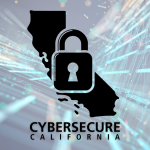Understanding Cybersecurity
Hey there! You’ve probably heard a lot about being safe on the internet, right? Well, cybersecurity is just a fancy way of saying “protecting yourself and your stuff online.” Just like you wouldn’t leave your front door open when you leave home, cybersecurity keeps your digital doors locked tight.
Why Is Cybersecurity Important?
Every time you play a game, chat with friends, or post a photo, you’re sharing a little piece of yourself online. Cybersecurity helps to keep that information safe from people who might want to steal it or use it to bully or trick you.
Protecting Your Information
Strong Passwords
Imagine a lock that uses words instead of keys — that’s your password. A strong password is like a super secure lock that’s hard for hackers to open. Use a mix of letters, numbers, and symbols, and don’t use easy-to-guess stuff like your name or birthday.
Privacy Settings
You wouldn’t give your home address to a stranger, right? Well, your personal information is like your home address on the internet. Adjust your privacy settings on social media and games so only people you trust can see what you post.
Recognizing Scams
Have you ever seen a message saying you won a free phone or a million bucks? If it sounds too good to be true, it probably is. These are scams — tricks to get your personal info or money. Always check with a trusted adult if you’re unsure.
Being Wise on Social Media
Think Before You Share
The internet remembers everything, even if you delete it. Before you post something, think about how it might affect you or others. If it’s something you wouldn’t want everyone to see, it’s better not to share it.
Friend Requests
Getting friend requests can be exciting, but not everyone online has good intentions. Only accept requests from people you know in real life. It’s cool to make new friends, but it’s safer to do it in person, not online.
Respect
Just like in the real world, it’s important to treat others online as you want to be treated. Kind words can make someone’s day, while mean ones can really hurt. Let’s make the internet a nicer place for everyone!
Gaming Safely
In-Game Purchases
Games are fun, and buying stuff in them can be tempting. But spending real money online is serious business. Talk to your parents or guardians before buying anything, and never share their credit card information.
Chat Safely
Chatting with other players is part of the fun, but remember, they’re still strangers. Keep your personal info private, and if someone says something that makes you uncomfortable, tell an adult you trust.
Cyberbullying: How to Fight Back
Recognize It
Cyberbullying can be mean texts, posts, or even fake profiles made to make you feel bad. It’s not cool, and it’s not your fault if it happens to you.
Respond
If you’re being bullied online, don’t reply to the mean messages. Save them and show them to an adult you trust. They’ll help you report it and make it stop.
Support
There are lots of people who want to help you if you’re being bullied. You can talk to your parents, teachers, or counselors — they’re all on your team.
Homework and Research: Staying Secure
Secure Study Habits
When you’re researching for homework, make sure you use trustworthy sites. Look for addresses that start with “https” – the “s” stands for secure.
Safe Searching
Use kid-friendly search engines when looking up information for school projects. They filter out the bad stuff so you don’t stumble upon it by accident.
Cybersecurity is a Team Sport
You’re not in this alone! Talk to your friends about staying safe online, and share what you learn. If we all do our part, the internet can be a fun place to explore and learn.
So, there you go — you’re now a bit more cyber-smart! Remember, the internet is an amazing world to discover, but just like crossing the street, you have to look both ways before you go. Keep these tips in mind, and you’ll be a pro at staying safe online.

